
Hankyoreh
| Closed-door negotiations may push OPCON transfer to 2015 |
| : Diplomatic sources say S.Korea and the U.S. discussed an OPCON transfer delay, but will not go public with the plans until Saturday’s summit Posted on : Jun.26, 2010 |
Multiple diplomatic sources involved with South Korea-U.S. relations said Friday that they understand that through closed-door contacts over time, the South Korean and U.S. governments have virtually reached an agreement to postpone the transfer of wartime operational control, which was initially scheduled for April 17, 2012, three years to 2015.
“U.S. forces in Japan, which are linked to U.S. forces in South Korea, are scheduled to complete their redeployment by October 2015, and from a purely military technology perspective, even if the transfer of operational control is delayed to October 2015, the United States would not have to make any changes to its global military strategy,” said a government official. “It seems predictions that the move of U.S. bases to Pyeongtaek will be complete by around 2015 have been factored in as well.”
There are many, however, who predict that during the Toronto summit, no concrete mention of the timing of the delay will be made; rather, after the two leaders have expressed a direction in principle, the details will be worked out through follow-up negotiations between South Korean and U.S. military officials.
The South Korean and U.S. governments have until recently repeatedly said that the transfer would proceed as scheduled, but in fact, there have reportedly been under-the-table negotiations on the issue of delaying the transfer since last year. Foreign Minister Yu Myung-hwan told local and foreign journalists Thursday that the government began to recognize changes in the situation when North Korea conducted its second nuclear test (on May 25, 2009). The under-the-table negotiations reportedly began in earnest last December, when a key figure in Cheong Wa Dae’s office of the senior secretary for foreign affairs secretly visited the United States, informing not even the South Korean ambassador in Washington, to meet with White House and State Department officials. The United States was reportedly negative at first regarding South Korea’s request to delay the transfer, but it began to adopt a more positive attitude towards the matter in March-April.
The problem is that the fine-tuning on a key point of contention of the alliance was conducted via high-level, secret negotiations focused on Cheong Wa Dae and the White House while virtually excluding the ministries and departments in charge of the issue in both countries. In response, Defense Ministry spokesman Won Tae-jae said during an open briefing Friday that the Defense Ministry has not conducted any negotiations with the Untied States over delaying the transfer. Foreign Ministry officials have responded by saying they know nothing, and official of the South Korean embassy in Washington say they have not been ordered by Seoul to do anything regarding the issue. The U.S. Pentagon is reportedly opposed to delaying the transfer as it stands. In fact, U.S. Defense Secretary Robert Gates said at a press conference after the 41st Security Consultative Meeting (SCM) in October that he was “absolutely certain” operational command would be transferred on April 17, 2012.
Please direct questions or comments to [englishhani@hani.co.kr]
______________________________________________________________
* Related article (* Informed by Rick Rozoff on June 28, 2010)
: Defense News
Agence France-Presse
U.S., S. Korea Defer Command Transfer To 2015
June 27, 2010

![[URGENT PLEA: In Update] EMERGENCY in GANGJEONG Since AUG. 24, 2011](http://2.bp.blogspot.com/-3iz8k-USXVY/TlmRYhhIYtI/AAAAAAAAL2c/9dbF85ZIkIs/s227/jejusit.jpg)
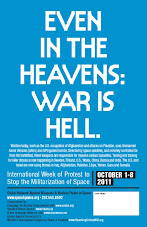
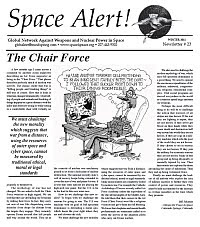

![[Solidarity from Japan for the Jeju] 253 individuals and 16 groups/organizations](http://2.bp.blogspot.com/_gnM5QlRx-4c/TR_YeNVE1yI/AAAAAAAAHWQ/ARyf6oQN0S0/S227/jeju_12_10j.jpg)
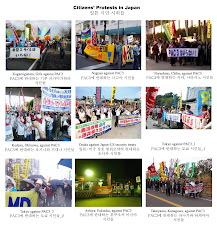
![[Translation] Korean organizations' statement: Immediately cancel the joint ROK-US drill Nov 26](http://2.bp.blogspot.com/_gnM5QlRx-4c/TPOE8VKXHFI/AAAAAAAAGlM/8lryt-8sFjc/S227/1.jpg)
![HOT! [Hankyoreh Hani TV] Beneath the Surface: the investigation into the sinking of the Cheonan](http://4.bp.blogspot.com/_gnM5QlRx-4c/TOI83qht8aI/AAAAAAAAGXU/22SW6Q5ntV8/S227/HaniTV%2BCheonan.gif)

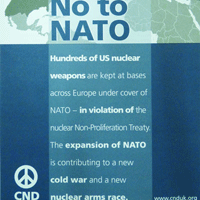

![[Translation]Statement against illegal inspection and unjust lay-off by the Kunsan USAFK!(Nov_2010)](http://4.bp.blogspot.com/_gnM5QlRx-4c/TOPLsVkZMqI/AAAAAAAAGZs/3YnnckIyAaY/S227/gunsan%2Bprotest.gif)
![[Translation] Korean organizations' statement against dispatching special force to the UAE on Nov.](http://4.bp.blogspot.com/_gnM5QlRx-4c/TOP95zHXlCI/AAAAAAAAGak/E0Ug1XtUFfM/S227/antiwarpeace.jpg)
![[Translation] Stop, Joining MD!: South Korean activists' statement and writing on Oct. 25, 2010](http://3.bp.blogspot.com/_gnM5QlRx-4c/TOP7Es4_2sI/AAAAAAAAGac/eWVMPD-U4p0/S227/StopMD.jpg)
![[In Update] People First, NO G-20 (Nov. 6 to 12, Korea)](http://2.bp.blogspot.com/_gnM5QlRx-4c/TJd53XBzHlI/AAAAAAAAFQo/ldO9JPE3eqo/S227/left21_G20.jpg)
![[International Petition] Stop US helipad plan in Okinawa to save great nature](http://4.bp.blogspot.com/_gnM5QlRx-4c/TKC2AHRNzBI/AAAAAAAAFUo/yGWXODTw_uM/S227/yanbaru_w.jpg)

![[Global Network] against the first launch of Quasi-Zenith Satellite, Japan, on Sept. 11, 2010](http://4.bp.blogspot.com/_gnM5QlRx-4c/TIowa1boy4I/AAAAAAAAFDI/82rAi98uq-c/S227/Qzss-45-0_09.jpg)

![[In update] Some collections on the Koreans’ protests against the sanction & war on Iran](http://4.bp.blogspot.com/_gnM5QlRx-4c/TJMvke6t8zI/AAAAAAAAFO4/tamQ8LUnOOA/S227/No+Sanction+on+Iran.jpg)
![[Three International Petitions] to End the Korean war and peace treaty(or peace resolution)](http://1.bp.blogspot.com/_gnM5QlRx-4c/THef7bzWxYI/AAAAAAAAE44/wwdzSDfYhdw/S227/border.jpg)
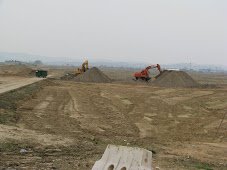


![[Collection of Documents] No Base Learning and Solidarity Program_Korea(June 14 to 20, 2010)](http://1.bp.blogspot.com/_gnM5QlRx-4c/TCTvVuN8NeI/AAAAAAAAEek/8vBJVaHdk10/S227/No-Base-banner.jpg)
![Site Fwd:[John Hines] A U.S. Debate coach’s research trip on the Issues of Korea](http://3.bp.blogspot.com/_gnM5QlRx-4c/TINCO36mzzI/AAAAAAAAE_w/Rds12NcBOXM/S227/Jeju-Peace-Tour.jpg)


![[News Update] Struggle Against the Jeju Naval Base since Jan. 18, 2010](http://1.bp.blogspot.com/_gnM5QlRx-4c/S1vvWaP25uI/AAAAAAAACkg/QvpW1tgOlKM/S226/scrum1.jpg)


![[Urgent] Please spread the Letter!: There was no Explosion! There was no Torpedo! (May 26, 2010)](http://4.bp.blogspot.com/_gnM5QlRx-4c/S_9JmsKEU7I/AAAAAAAAEP8/sAWjSPqxzUI/S227/grounded.jpg)
![Text Fwd: [Stephen Gowans]The sinking of the Cheonan: Another Gulf of Tonkin incident](http://1.bp.blogspot.com/_gnM5QlRx-4c/TAL_FtYKQ-I/AAAAAAAAERE/NEEMijiEcRM/S227/lee-myung-bak.jpg)
![[Japan Focus]Politics in Command: The "International" Investigation into the Sinking of the Cheonan](http://1.bp.blogspot.com/_gnM5QlRx-4c/TBMJ2syJzyI/AAAAAAAAEZU/uTYZccU5vyk/S227/wen_jiabao_and_lee_myungbak.png)
![[Japan Focus] Who Sank the SK Warship Cheonan? A New Stage in the US-Korean War and US-China](http://2.bp.blogspot.com/_gnM5QlRx-4c/S_iQ2vE5ZpI/AAAAAAAAEOU/Oo1SPcAe8FE/S227/buoy_map.gif)
![[Updated on 12/13/10] [Translation Project] Overseas Proofs on the Damages by the Military Bases](http://4.bp.blogspot.com/_gnM5QlRx-4c/S-qSj59gPLI/AAAAAAAAEGM/mwjlFtPE-jo/S227/missile.jpg)
![[International Petition] Close the Bases in Okinawa](http://3.bp.blogspot.com/_gnM5QlRx-4c/S8-z3DYNwNI/AAAAAAAADo4/OswTSchK09M/S227/2.jpg)

![[In Update]Blog Collection: No Korean Troops in Afghanistan](http://4.bp.blogspot.com/_gnM5QlRx-4c/SwnlLD9IewI/AAAAAAAAB9E/oUPssnpNidA/S226/No-Troops-to--Afghanistan.jpg)
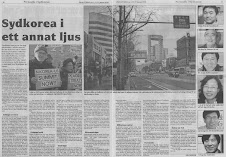

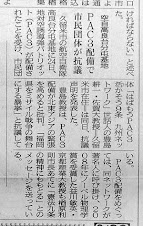

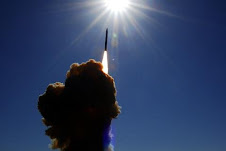



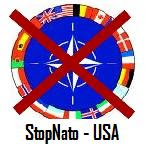


No comments:
Post a Comment